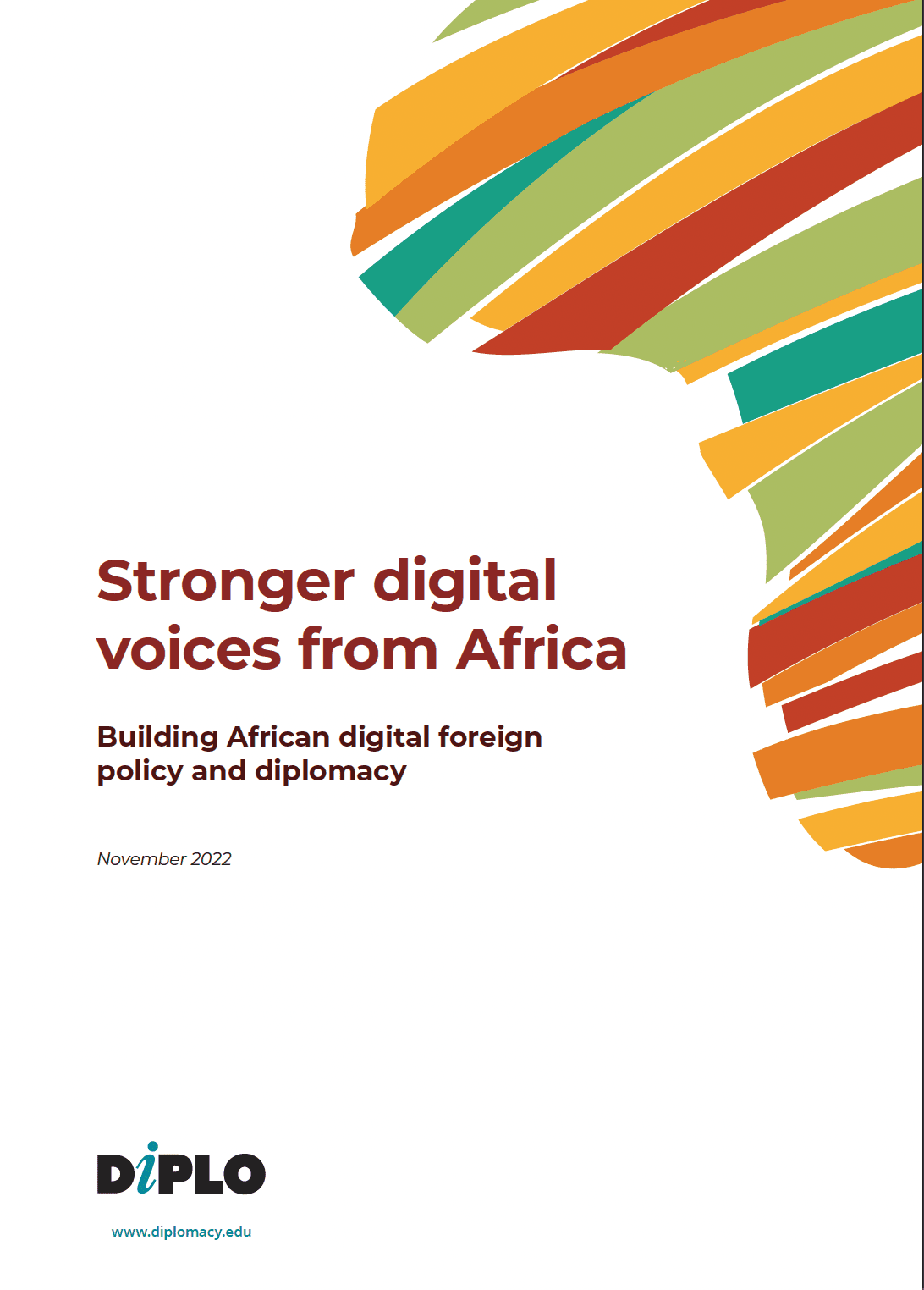Africa’s participation in international standards developing organisations
Read full report Stronger digital voices from Africa: Building African digital foreign policy and diplomacy.
Digital standards are relevant not only from a technical point of view; they also have broader economic, social, and political implications. Standards support innovation and help develop and sustain competitiveness, thus being able to contribute to economic growth. They can also provide the context for promoting or abusing human rights. Moreover, standards can help achieve certain public policy objectives, such as protecting consumers’ rights and promoting the safe development of technologies. More and more visible in recent years, standards also have geopolitical implications: Governments are increasingly aware that if a country’s actors can influence standards in strategic industries, that country would likely obtain a significant advantage on the international stage.1Teleanu, S. (2021). The geopolitics of digital standards: China’s role in standard-setting organisations. DiploFoundation.
Given the borderless nature of the digital space, and the fact that digital standards are reflected in products and services used around the world, it is important that the development of standards integrates views and interests from as many stakeholders as possible.
In this section we look at African actors’ participation in several key international standards developing organisations (SDOs) (having covered ITU-T elsewhere): The International Organization for Standardization (ISO), whose wide scope includes, among others, the development of standards for e-commerce, robotics, and security; the International Electrotechnical Commission (IEC), which develops standards for electrical and electronic technologies; the Internet Engineering Task Force (IETF), tasked with developing standards for the internet; the World Wide Web Consortium (W3C), dedicated to standards for the world wide web; and the 3rd Generation Partnership Project (3GPP), which focuses on standards for cellular (mobile) telecommunications technologies.
Forty-three African countries have ISO membership (be it full member, correspondent, or subscriber) through their national SDOs. Among them, South Africa, Egypt, and Kenya are involved in the largest number of technical committees (TCs), and only South Africa (11), Kenya (1), and Uganda (1) hold TC secretariat positions.2The statistics cover all ISO TCs, some of which are not necessarily working on standards related to digital technologies.
Only 11 African countries have their national SDOs involved in the IEC: Algeria, Egypt, Nigeria, and South Africa as full members, and Côte d’Ivoire, Ethiopia, Ghana, Kenya, Morocco, Tunisia, and Uganda as associate members. Among them, only South Africa holds the secretariat position for one TC.
ISO and IEC have a joint technical committee for information technology – JTC1, which focuses on the development of standards related to issues such as cloud computing, biometrics, cybersecurity and privacy protection, internet of things and digital twins, and AI. Twenty-one African countries are engaged in at least one of the twenty-three JTC1 subcommittees (SCs), either as participating or observing members (Figure 29). In addition, Zimbabwe, Gabon, and Burundi participate as observers in the overall JTC1.
Figure 29. Countries with participation in JTC1 subcommittees (October 2022).
The IETF does not have a formal membership structure, and everyone interested is welcome to participate in the work. Data tracked by the organisation until 20213Internet Engineering Task Force [IETF]. (n.d.). Draft/RFC statistics – Number of document authors per country. shows that there have been very few individuals from African countries contributing to IETF work as document (draft/RFC) authors. Twelve countries are present in these statistics: Algeria (1 document author), Cameroon (1), Egypt (3), Gabon (1), Gambia (1), Kenya (2), Mauritius (4), Morocco (26), Nigeria (2), South Africa (9), Tunisia (1), and Uganda (3).
Historically, Africa is the continent with the least participation in IETF work (judging by the same metric). In 2000, for instance, there were 1,088 document authors from North America, 281 from Europe, 132 from Asia, 22 from Oceania, 4 from South America, and 3 from Africa. Twenty years later, in 2021, the number of authors from Africa remained the lowest (8), while recording significant shifts for the other continents: 567 from North America, 491 from Europe, 536 from Asia, 18 from South America, and 18 from Oceania.4Internet Engineering Task Force [IETF]. (n.d.). Draft/RFC statistics – Number of document authors per continent.
Botswana, Egypt, and South Africa are the only African countries with stakeholders involved in the 3GPP, the SDO responsible for, among other issues, the development of 5G-related standards. Botswana’s Communications Regulatory Authority and South Africa’s Telkom SA SOC Ltd are individual members of 3GPP, but via the European Telecommunications Standards Institute (ETSI), where they are both members (since participation in 3GPP is restricted to entities associated with 3GPP organisational partners,53GPP’s organisational partners are Japan’s Association of Radio Industries and Businesses (ARIB) and Telecommunication Technology Committee (TTC), the US Alliance for Telecommunications Industry Solutions (ATIS), China Communications Standards Associations (CCSA), the European Telecommunications Standards Institute (ETSI), India’s Telecommunications Standards Development Society (TSDS), and the Republic of Korea’s Telecommunications Technology Association. and no African SDO has such a role). One Egypt-based entity – Open Valley – is a 3GPP guest.
At the W3C, the only Africa-based members come from Morocco, Senegal, and South Africa. In the case of South Africa, it is a social media platform (Snake Nation) and a provider of identity and user identification services (Entersekt) that are W3C members, while the two members from Senegal and Morocco are academic institutions (École Supérieure Polytechnique de Dakar and École Mohammadia d’Ingénieurs Rabat).
The fact that there is little participation from African actors in international standardisation processes (besides ITU) could be explained by multiple factors, from limited awareness of the importance of being part of such processes, to lack of adequate resources (among governments, national standardisation bodies, technical and business communities) to support such participation. Faced with capacity constraints, some governmental entities also choose to engage through multilateral forums such as ITU, which they tend to be more comfortable with and to whom they confer legitimacy.



